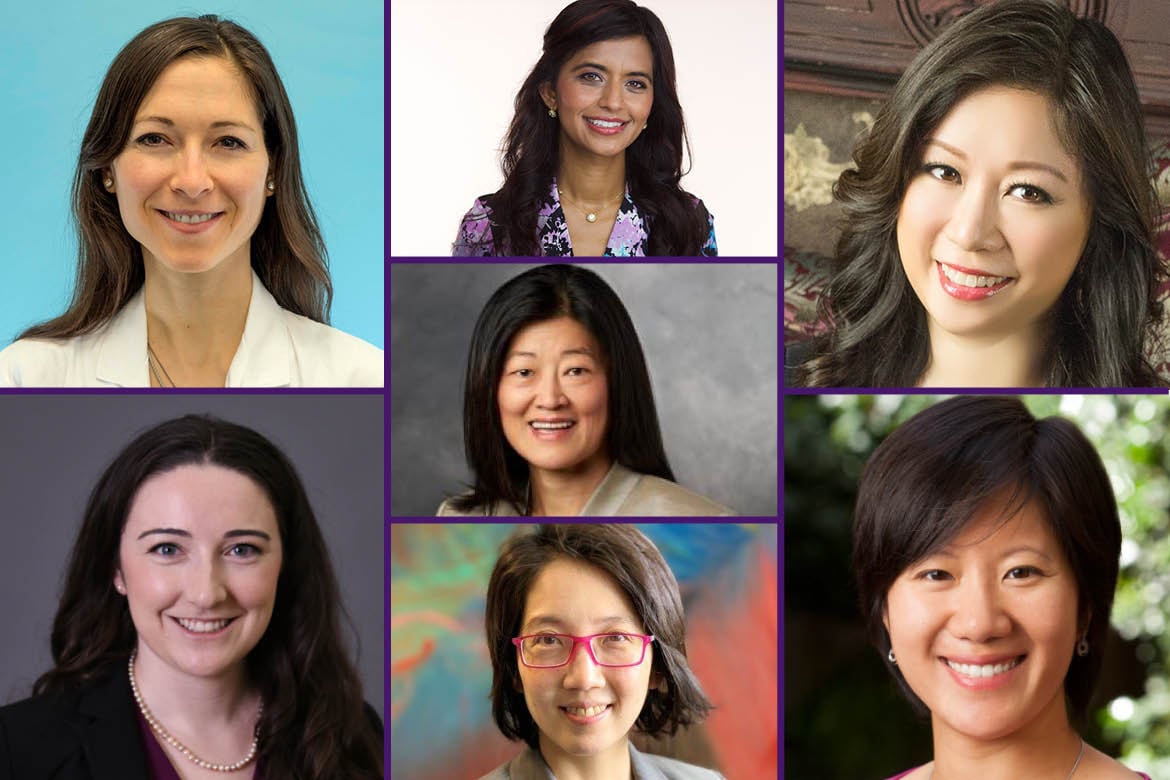Academic medical centers increasingly recognize the importance of diversity and inclusion. Yet, the number of women in orthopedic surgery remains staggeringly low. Similarly, women physicians face unique obstacles as they progress through their careers. This raises two questions: Why is there a gender gap within orthopedic surgery, and what do women physicians experience during important transitions in their careers that reveal unique barriers and opportunities?
These are questions that two separate teams of researchers will set out to answer with the help of grants from the Joan F. Giambalvo Fund for the Advancement of Women.
The AMA Women Physicians Section (AMA-WPS) hosts Women in Medicine Month each September to acknowledge pioneering women, celebrate their accomplishments and help cultivate future female physicians.
The Giambalvo Fund is administered by the AMA Foundation on behalf of AMA-WPS, and awards scholarships of up to $10,000 to health care researchers to identify and address issues that affect women physicians and medical students.
Since 2006, the AMA-WPS and AMA Foundation have granted 27 research awards on topics such as flexible work options, and the promotion and retention of diversity in medical education.
Gender differences in student sense of belonging
Orthopedic surgery is considered the least gender-diverse medical specialty, with women comprising of only 17% of orthopedic-surgery faculty, compared with 23% in general surgery and 32% in otolaryngology. Few prior studies have looked at why female medical students are not entering the field of orthopedics.
“Through the Giambalvo Fund for the Advancement of Women grant, we will study gender differences and medical students’ sense of belonging within orthopedics,” said AMA member Kate Gerull, a fourth-year medical student at Washington University School of Medicine (WUSM) in St. Louis. “We plan to survey and interview medical students at several Midwest schools to study their belonging and academic fit within orthopedic surgery.”
“I’m excited for this opportunity to help the field of orthopedic surgery and its efforts to improve gender diversity,” said Cara Cipriano, MD, an assistant professor of orthopedic surgery and the director of medical student education at WUSM.
“We hope to better understand why women are pursuing orthopedics at low rates,” said Gerull.
Learning to navigate early to midcareer
“This project was born in part by personal experiences of each of us as early- to mid-career women physicians, but also motivated a lot by the larger empowerment movement for women in medicine,” said Tiffany Leung, MD, internist and assistant professor at Maastricht University Medical Center in the Netherlands. Dr. Leung is also chair-elect of the American College of Physicians’ Council of Early Career Physicians.
The team of researchers working with Dr. Leung includes:
- Sima S. Pendharkar, MD, division chief of hospital medicine at the Brooklyn Hospital Center, and assistant professor of medicine at Icahn School of Medicine in New York.
- Angie Chen, MD, medical director of the Primary Care Chemical Dependency Program and clinical assistant professor in the Department of Primary Care and Population Health at Stanford University School of Medicine.
- Tammy Lin, MD, voluntary assistant clinical professor of medicine at the University of California, San Diego.
- Karen Wang, MD, assistant professor in the Department of Internal Medicine at Yale School of Medicine.
“Among us, we’ve experienced a diversity of issues, challenges and successes, whether because of our gender, race, relationship status, and the social contexts in which we work and live,” she said. “But there are commonalities among our stories and those are the stories and learnings we want to explore with other women too.
“We are all navigating careers while striving to integrate it with a personal or family life and numerous additional roles and trying to stay healthy and well. But how do they do it?” Dr. Leung added. “These are the kinds of issues we want to explore as we invite women in transition from early- to mid-career to participate in this reflective journey with us.”
Learn more about ways to celebrate Women in Medicine Month.




